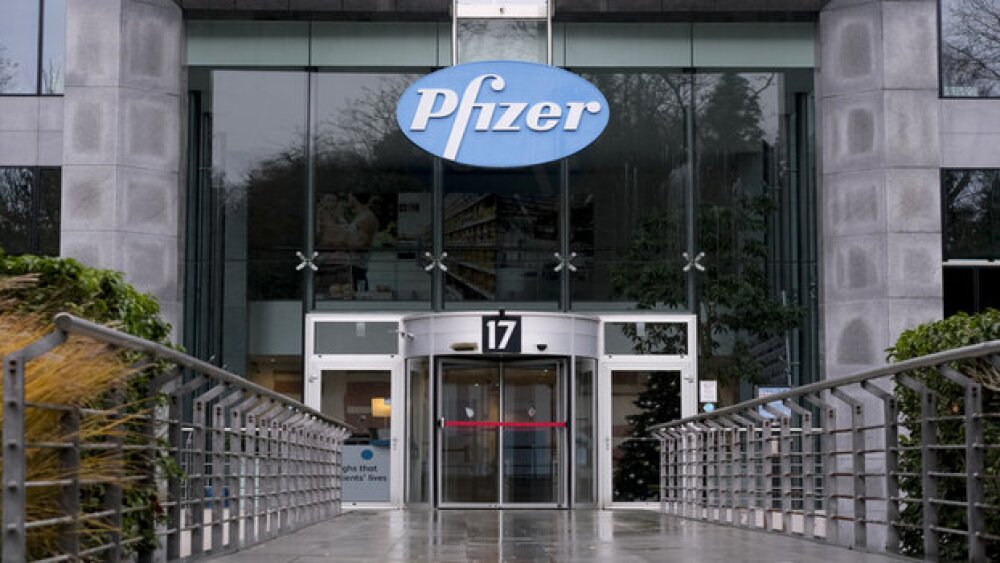The Population Health Research Institute and Bayer Inc. announced plans to immediately launch a major clinical research program aimed at identifying potential COVID-19 treatments.
MISSISSAUGA, ON, April 21, 2020 /CNW/ - Today, the Population Health Research Institute (PHRI) and Bayer Inc. announced plans to immediately launch a major clinical research program aimed at identifying potential COVID-19 treatments. The two studies will evaluate the safety and efficacy of different combination therapies including Bayer's chloroquine and interferon beta-1b.
"Specifically, an outpatient study will evaluate the combination of chloroquine with azithromycin to see if this treatment can prevent deterioration leading to hospital admission, while a second study will evaluate the combination of chloroquine with azithromycin, as well as interferon beta-1b, to prevent admission to intensive care, mechanical ventilation and/or death to combat COVID-19," said Salim Yusuf, Executive Director of PHRI. "Our goal is to assess the value of these and other therapies rapidly so that the results can inform practice as soon as possible."
Bayer will make a financial commitment of 1.5 million Canadian dollars towards the studies and will supply study drugs to support the research. This adds to the 0.5 million Canadian dollars committed by the PHRI earlier this month which enabled development of the research program.
"We look forward to once again partner with the outstanding research team at PHRI," said Shurjeel Choudhri, Senior Vice-President, Medical & Scientific Affairs at Bayer Inc. "This is another great example of joining forces with partners in the fight against COVID-19. Taking bold action around the world to fight and contain COVID-19 is our goal."
PHRI plans to enroll 6,000 patients into the two studies from more than 60 contributing research sites across Ontario, Canada and internationally.
"Ontario is home to world-class researchers who are continually furthering our understanding within the health sciences and finding new ways to keep our communities healthy and safe," said Ross Romano, Minister of Colleges and Universities. "I want to thank Bayer, the Population Health Research Institute, and all of our research community for their critical work to limit the impact of COVID-19. I know that, because of your efforts, we will emerge from this stronger than ever."
About the investigational treatments
Bayer produces chloroquine phosphate (trade name: RESOCHINTM), which is approved in some countries outside of Canada for use in malaria and some other illnesses. The Chinese health authorities have included chloroquine in the treatment recommendations for COVID-19. Subsequently, many other health authorities, such as the U.S. Food and Drug Administration (FDA), have adopted similar guidance for supervised emergency use of chloroquine outside of the established indications.
As peer-reviewed and published clinical data are currently not available for chloroquine in the COVID-19 treatment setting, Bayer is working with researchers, governments and front-line practitioners to support generation and exchange of data to help to close this knowledge gap.
In addition, Bayer is donating chloroquine to health authorities in different countries to allow for coordinated and emergency use of the drug outside of the established indications under the guidance of physicians.
In addition to looking into the potential of chloroquine, Bayer is actively participating in several global coalitions supporting research for drugs and treatment strategies against SARS-CoV-2.
Interferon beta-1b in a recombinant form is one of the marketed interferon beta formulations (brand name BETASERON/BETAFERON®). This was the first drug to show in multiple sclerosis (MS) a decrease in relapse rate and to reduce MS disease activity as measured by MRI in clinical studies. These findings led to its approval by FDA as the first therapy for treatment of the former orphan disease MS in 1993. Approvals by other agencies around the world followed subsequently.
Azithromycin is an antibiotic used for the treatment of a number of bacterial infections including strep throat and pneumonia, as well as travellers' diarrhea and certain other intestinal infections. Along with other medications, it may also be used for malaria. Azithromycin was first approved for medical use in 1988. It is on the World Health Organization's List of Essential Medicines.
About Population Health Research Institute (PHRI)
The Population Health Research Institute (PHRI) is a joint Research Institute of McMaster University and Hamilton Health Sciences. It is Canada's premiere global health research institute and a world leader in large clinical trials and population studies. Originally formed with a focus on cardiovascular disease and diabetes, PHRI's research areas have broadened to include population genomics, perioperative medicine and surgery, stroke, thrombosis, renal disease, and obesity, with unparalleled expertise in epidemiology, population health and clinical trials. For more information, please visit www.phri.ca.
About Bayer: Science For A Better Life
Bayer is a global enterprise with core competencies in the life science fields of health care and nutrition. Its products and services are designed to benefit people by supporting efforts to overcome the major challenges presented by a growing and aging global population. At the same time, the Group aims to increase its earning power and create value through innovation and growth. Bayer is committed to the principles of sustainable development, and the Bayer brand stands for trust, reliability and quality throughout the world. In fiscal 2019, the Group employed around 104,000 people and had sales of 43.5 billion euros. Capital expenditures amounted to 2.9 billion euros, R&D expenses to 5.3 billion euros. For more information, go to www.bayer.ca.
Forward-Looking Statements
This release may contain forward-looking statements based on current assumptions and forecasts made by Bayer Group or subgroup management. Various known and unknown risks, uncertainties and other factors could lead to material differences between the actual future results, financial situation, development or performance of the company and the estimates given here. These factors include those discussed in Bayer's public reports which are available on the Bayer website at www.bayer.com. The company assumes no liability whatsoever to update these forward-looking statements or to conform them to future events or developments.
SOURCE Bayer Inc.




